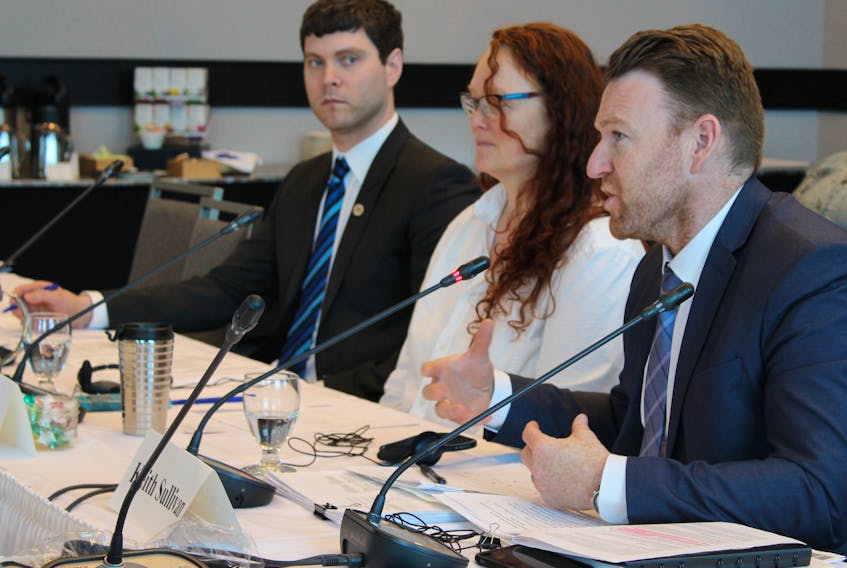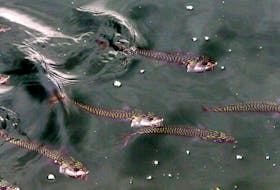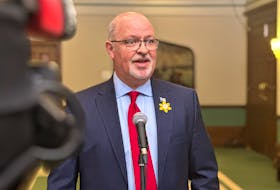ST. JOHN'S, N.L. — Everything from the oil and gas industry, future hydroelectric projects and the planet we call home are under the microscope as Bill C-69 comes closer to reality.
The bill will change how environmental assessments across the country are handled. On Tuesday, senators were at the Delta Hotel in St. John’s to hear from industry, environmentalists and unions about their visions for the bill. The matter is top of mind for politicians on the campaign trail, as well.

In short, Bill C-69 seeks to give the federal government more control over how major projects go through the environmental assessment process. The first priority of the bill would take environmental assessments out of the hands of the provinces and put them with a newly mandated federal Impact Assessment Agency as the sole federal authority.
Premier Dwight Ball supports the bill, but not in its current form. Ball and Natural Resources Minister Siobhan Coady presented to the senate in February, outlining what changes they’d like to see.
Ball is concerned about additional regulations that he says could slow the overall assessment process and wants the Canada-Newfoundland and Labrador Offshore Petroleum Board (CNLOPB) to remain in charge of provincial assessments. He also says exploratory wells in the offshore oil and gas industry should not be subject to environmental assessment.
“What we really need in early days is to get exploratory wells happening so we can see where there’s opportunities for discovery. This is where industry is,” said Ball.
“They want to go out there, see what they can find, and if they find a significant discovery, then there would be an impact assessment done in that area.”
Ball says there is universal agreement among government, industry and scientists that the assessment regulations have to change, and the question is what the changes will look like.
Protecting ecosystems
Marine Institute research scientist Brett Favaro says the concerns are not just about the interests of industry, but about the fragile ecosystems across the country.
“The logic underpinning (the bill) is that Canada’s ecosystems are not secure. There’s lots of evidence that we’re losing habitat, species are at risk of extinction, and it’s actually really rare that a species improves in Canada,” he said.
Favaro says there’s a lot of fear-mongering going on about the bill.
“There’s industry-focused people and politicians that are saying that this is the ‘no more oil bill’ and all these catchphrases people have used – it couldn’t be further from the truth,” said Favaro.
“The only critiques that I’ve seen that have been evidence-based – and I’ve looked for them – are on the side that the bill is too weak.”
Legal action
Progressive Conservative Leader Ches Crosbie says he’ll sue the federal government to prevent any changes to the existing assessment rules if he has to. He says the bill seeks to shut down the province’s offshore oil and gas industry.

“In Alberta, they call it the ‘no more pipelines bill.’ Out here, I call it the ‘no more offshore bill,’” said Crosbie.
“The purpose of it is to slow down development of our natural resource wealth until investors … lose interest in investing in our offshore and it dies what they think is the natural death it should die.”
New Democratic Party Leader Alison Coffin also has concerns about the bill – that politics is playing too large a role in the assessment process.
“Bill C-69 still needs some work. We need an Impact Assessment Act that makes sure politics is not put ahead of science and environmental protection. The provincial Liberals and Tories would like the CNLOPB to be able to do the necessary environmental assessments without having to go through the federal environmental assessment agency. But the petroleum boards have conflicting mandates – licensing and promoting oil and gas extraction, and protecting the marine environment,” Coffin wrote in a statement.
Decimated river
Roberta Frampton Benefiel, presenting on behalf of the Labrador Land Protectors, says she’s delighted to see the potential for environmental assessment to move from the provincial level to the federal level, pointing to Muskrat Falls as a case-in-point. But there’s one project at the top of her mind that she hopes will be affected by federal changes.
“What’s at stake is Gull Island. The complete decimation of the Grand River. That’s what’s at stake,” said Benefiel.
“Right now, Muskrat Falls, that will flood back to Gull Island. It won’t change a whole lot of the river’s beauty because it’s flat land from Gull Island down anyway, mostly. But once Gull Island is up and running, if they go with that, that river is completely ruined for hundreds of years.”
Keith Sullivan, president of the Fish, Food and Allied Workers (FFAW), says an important aspect missing from the existing environmental assessment legislation is study of the effects of seismic study – where loud, underwater explosions are used to map beneath the seafloor. Nalcor is among the world’s pioneers of the practice.
“It’s obvious that seismic is having impacts on the marine environment over broad areas. Logically, something that’s having that kind of impact should be considered for an environmental assessment. I don’t understand why it wouldn’t be,” said Sullivan.
“There’s so many impacts of seismic that we don’t really know, whether it’s on plankton or fish. … There’s more questions than answers there. Because of that, it’s even more important to have environmental impact in that field.”
The bill also takes climate change into account as one of the long-term effects that can be considered before a project is approved.
Favaro says measures to ensure sustainable industrial development are crucial for the future of the planet.
“We need to reduce our greenhouse gas emissions by half by 2030. That’s to keep climate change beneath 1.5 degrees Celsius, which is sort of the safe limit – there’s still some danger there, but it’s the safe limit,” said Favaro.
“This requires nothing short of a full transformation of society.”
Twitter: @DavidMaherNL









